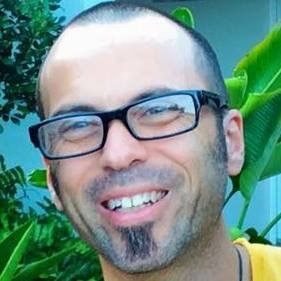Exploring transformational neighborhood change: Rich Jones
What happens when neighborhoods change? This article by Rich Jones, originally published in Streetvibes newspaper, explores the importance of authentic relationships in change. Rich also shares changes in his own neighborhood and what he’s seeing in initiatives such as Economics of Compassion and Oasis.
When my son was 10, he was having a hard time understanding why things change. My son likes the idea of change, loves new challenges, but he also wants stability and to know that there are things and people he can count on.
All of us, no matter how old we are can relate. Change happens. It causes disruption, which can be extremely uncomfortable, and good. It leads to questions, sometimes answers, and growth when we embrace change and remember that we are not alone. We have each other, and when we pause for a moment in the midst of change, we begin to sense something of the divine that connects us something deeply personal beyond ourselves.
Our country has experienced a lot of change, a divisive election, hate crimes on the rise, open racism and sexism, heated political rhetoric, the lament of “Black Lives Matter”, and the violence that begets violence. We either react in anger, retreat, or we face it and work towards deeper understanding and awareness. It’s important to note that the changes in culture cause us to reflect personally and in our communities, but also in our institutions, businesses, professions, etc.
Yes, change can bring anxiety, fear, and even a deep sense of unrest. In those times, we can have a desire to try and control things, to try to go back to the “way things were”. Deep down, we know we can’t, that life continues to move forward whether we like it or not.
We see and experience change happening throughout our neighborhoods in Cincinnati. If there wasn’t change, then there would be status quo, which leads eventually to decline and death. An argument can be made that any change is good change, but I would say one should anticipate change and inserting one’s self into the conversation around any change in order for it to be beneficial for all persons affected by that change. Trying to anticipate change and being a change agent can be risky, anxious, exciting, energizing, and good for the world.
The Economics of Compassion Initiative that I am involved with is a risk taking, exciting, and energizing movement of good people. Our desire is to see neighborhoods change and grow into all that they were intended to be; places of community, friendship, cooperation, and equal access to an economy that can sometimes be a barrier to reaching our God-given potential.
At ECI, we believe that transformational growth is the best kind of change. We can see transactional growth in the form of new developments that can be prohibitive for many. But, transformational growth starts and ends with authentic relationship.
One of our Economics of Compassion board members, Rev. Daniel Hughes, is a great example of a transformational change agent. He is involved intimately in his Price Hill neighborhood, building friendships, listening to folks, asking questions, and doing “experiments” that can lead to a further sense of deep community. He’s willing to take risks, he may fail or succeed, but the energy he brings into a conversation or project al-ways leads to something good.
I have also seen the neighborhood that I live in, Finneytown, experience deep cultural change. Over the past 17 years that we’ve lived here, we have seen our community become more of a “melting pot,” creating a dynamic blend of persons who have lived here for generations with people moving in from the city core and refugees from all over the world. They are drawn to cheap housing and a good school district, as well as a group of neighbors that have self-organized around the school, churches, non-profits, and other groups to figure out ways to build community. Some efforts have not gone well, others have.
One organization that I have been involved with is Oasis, which started in London. We have had a desire to build a community hub for people in our neighborhood to come together for opportunities of relationship. We use the principles of Asset Based Community Development to create opportunities such as our summer camp for Finneytown students to have academic and social enrichment, as well as some amazing adventures and opportunities to engage parents, guardians, and others in community.
I have found that same spirit in everyone that I’ve had the privilege to work with at ECI and Oasis. These are folks who are simply committed to practicing goodness. I’ve also seen that same spirit in so many other organizations across this city. It is truly an exciting time of change, of transformation.
In times of change, the practice of being rooted in a place where relationships can flourish is important. I believe that neighborhood living, being in community with others, can help us move through change and come out stronger.
There is something deeper at work in our neighborhoods. If we follow the practice of Daniel and so many others by listening to our neighbors, staying curious and patient, asking questions, and looking for opportunities to build bridges, not walls, we can begin to see authentic community arise where we can find cooperation and real progress on some of the issues that surround us.
A friend of mine, Cormac Russell, reminded me recently that it’s far more important to stay connected rather than correct. Relationships “trump” everything. That doesn’t mean that we don’t make a stand at times for what is right, but it does mean that we have to remember the humanity of every person. If we can practice authentic empathy and friendship, then trust can develop. That trust leads us into deeper places within ourselves and our relationships with others.
I know that we have issues to confront in Cincinnati, but there are stories of immense goodness in every neighborhood of our great city! If we can listen to those stories, learn and grow from them, we can confront almost anything that we face, especially as we do that together in community with others.
In my faith tradition as a Jesus follower, we draw upon the richness of a shared history with Judaism. I especially enjoy some of the multiple meanings of words in Hebrew. The Hebrew word “hesed” is found throughout Scripture describing God. It means unfailing love, compassion, and intense loyalty to community. May we trust God’s “hesed” and live in community/relationship with each other as we grow and live into changing times.
Feature photo courtesy Pixabay.com
 Rich Jones is an Economics of Compassion board member and former pastor of Immanuel Presbyterian Church in the Clifton neighborhood of Cincinnati. He is involved with starting Oasis in Cincinnati and his neighborhood community hub. An avid runner and entrepreneur, Rich recently created the group Motive Running. Rich graduated from the University of Kentucky and Fuller Seminary. He is married to Debbie and is the father of teenagers McKenzie and Brennan.
Rich Jones is an Economics of Compassion board member and former pastor of Immanuel Presbyterian Church in the Clifton neighborhood of Cincinnati. He is involved with starting Oasis in Cincinnati and his neighborhood community hub. An avid runner and entrepreneur, Rich recently created the group Motive Running. Rich graduated from the University of Kentucky and Fuller Seminary. He is married to Debbie and is the father of teenagers McKenzie and Brennan.



